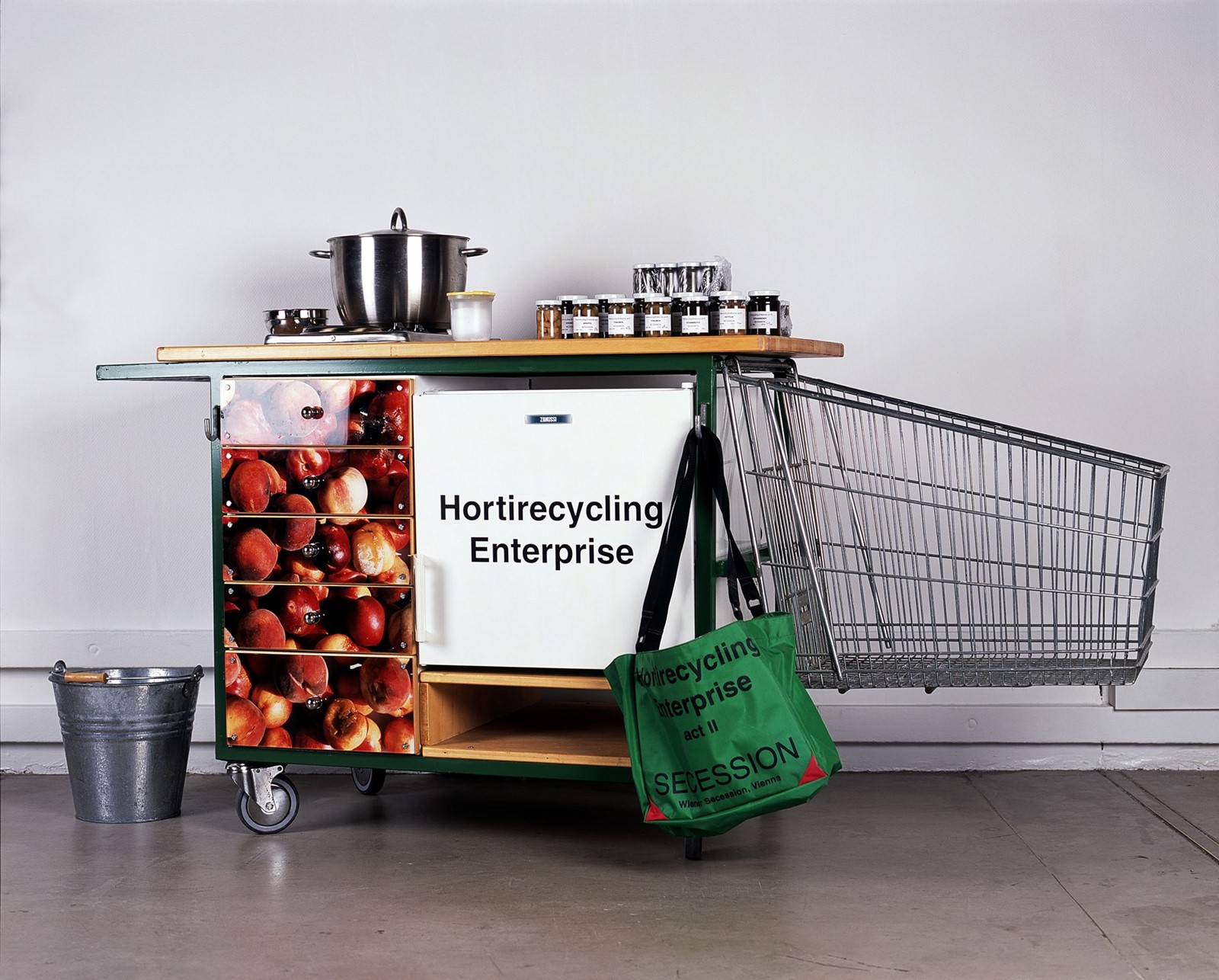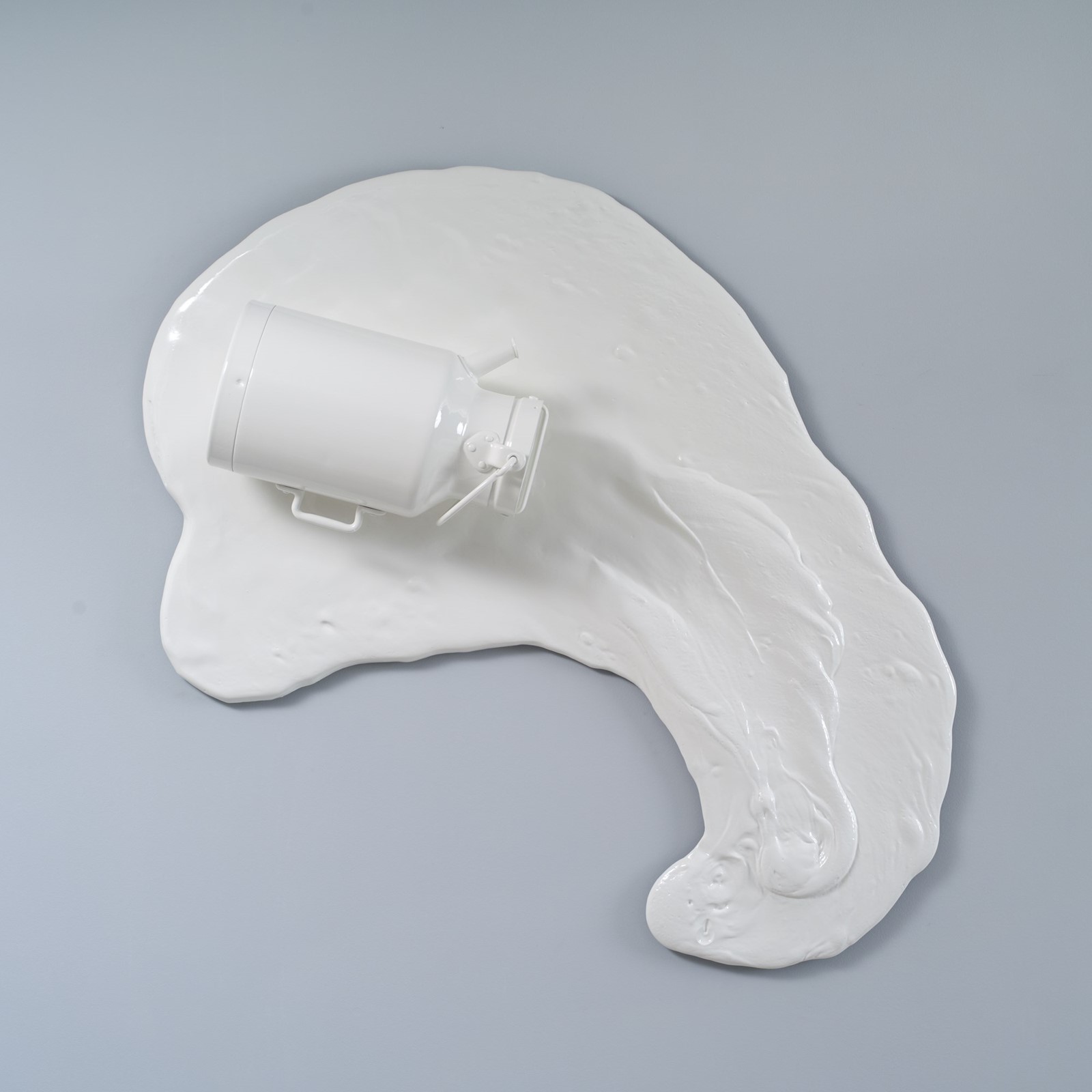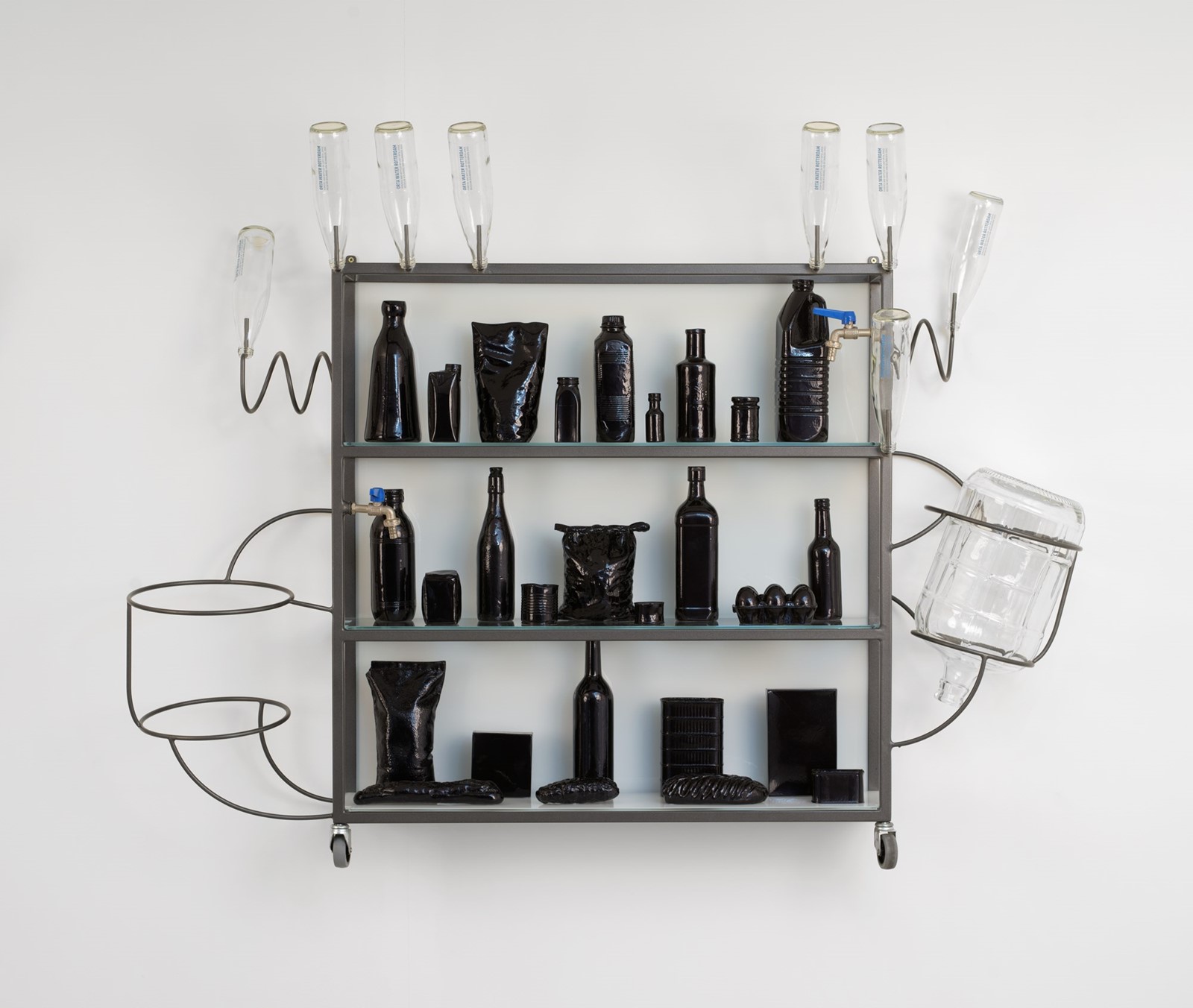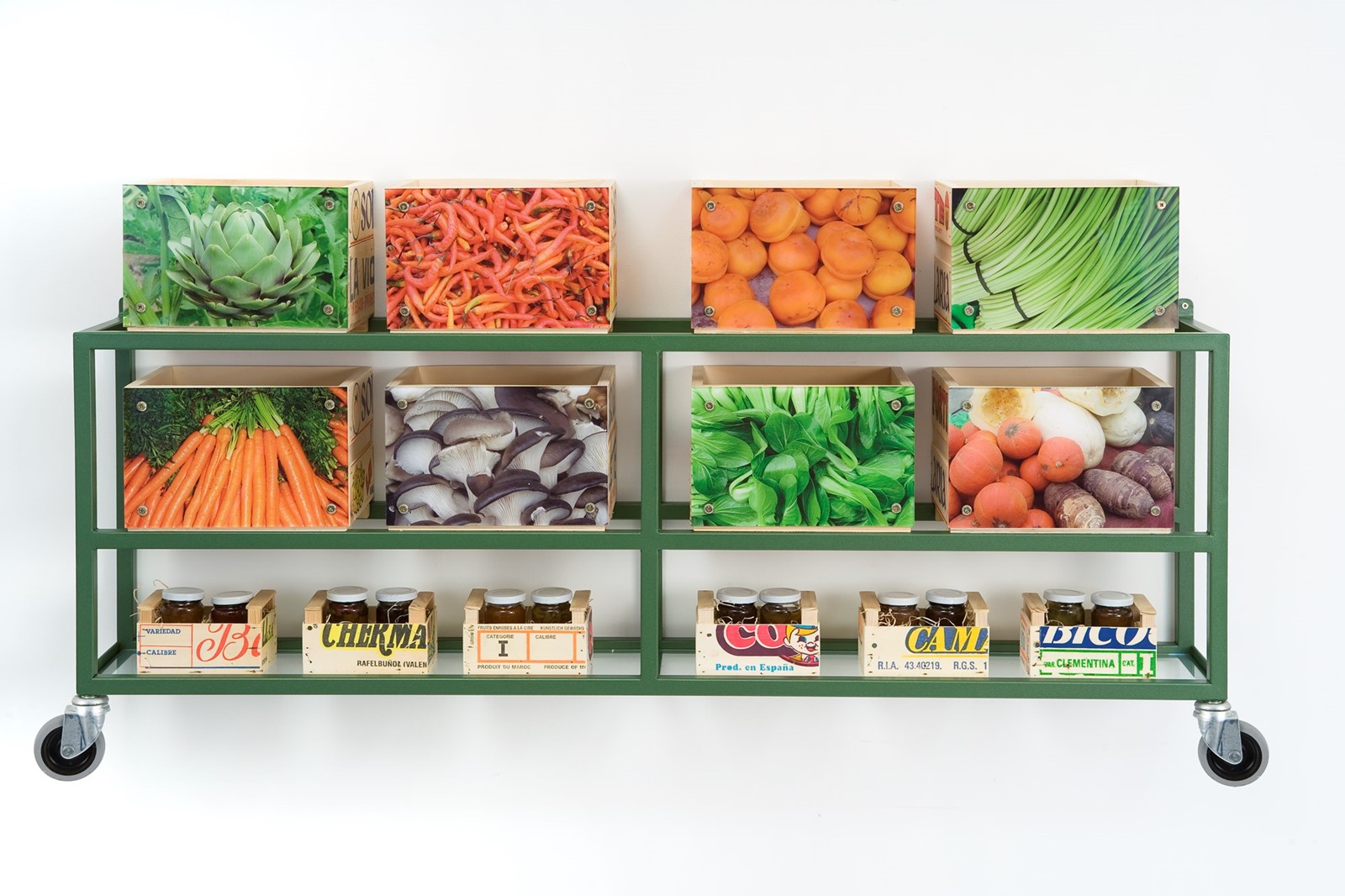It’s certainly no secret that some of the most influential works in contemporary art are the result of a dextrous collaboration between two (or more) acute minds. Paris-based husband and wife duo, Lucy and Jorge Orta – who founded their collective practice Studio Orta in 1992 – are a fine example. Bridging multifarious genres of fashion, art and performance, Studio Orta crafts thoughtful and highly progressive works which address and raise awareness of pressing social and ecological concerns. Consider, for example, their celebrated Refuge Wear project (1992–1998), in which the duo created a line of metallic polyamide jackets that could be transformed into portable tents, thus offering protection, solace and shelter for itinerant populations, inspired by the decade’s housing crisis.
And yet, it's impossible to discuss Studio Orta's oeuvre without talking about food, which has become a reoccurring theme in their work. For over 10 years, the pair has explored issues surrounding local and global food chains, human consumption and the seemingly dwindling ritual of community dining through staged “food acts” – as Orta explains when we meet at her bright Parisian office. "The first of our food acts took place back in 1997. Jorge and I hosted All in One Basket, an open-air buffet in the local market district of Les Halles in Paris, which focused on food waste and distribution inequalities," she adds, elaborating: "We collected 300 kilograms of fruit and vegetables that was past its sell by date, then with some famous local chefs, turned it into jams and jellies that we served to passers-by from trolley sculptures. Then the trolleys played recordings of local shoppers and vendors personal market stories."

The installation made a mark – so much so, in fact, that just two years later the Secession Gallery in Vienna re-commissioned the project and the duo broadened the concept, adding sinks, freezers and hotplates to the waste fruit and vegetable collection units. "We created complete mobile recycling workshops that became passionate marketplace social gathering points," she continues. "Each of these acts is part of an evolving process that becomes more complex and participative. Using the market as an example of a growing urban phenomenon, we were able to generate a debate around the broader subject. During the day, thousands of people stopped by, including members of the art community, shoppers, children, students and immigrants."
Their next "Act", 70 x 7, which began in 2000 and remains an on-going project, consists of community-driven banquets that encourage spontaneous interaction, centred around the ceremony of dining and the need for food consumption. "A youth centre in the French town of Dieuze commissioned myself and Jorge to host a banquet in 2000 with the aim to help heal the wounds between conflicting local communities," she says. "We invited the whole town to come and dine along a 500-metre long table, on which we placed limited edition Royal Limoges plates that were enamelled with our drawings and the wishes of the town’s inhabitants collected in the 18 months prior, which was amazing." Editions of these souvenir porcelain plates adorn the walls of Orta's office, testament to her dedication.

The success of the aforementioned Dieuze meal (70 x 7 The Meal, act IV) led to even bigger banquets with huge gatherings. "At first we invited a small number of guests to be part of an endless banquet, in turn asking them to invite others, so the act of creating the event happens through human interaction – we are merely the triggers, or enablers," she says. "The artwork takes the form of our most cherished rituals and mimics the essential need to unite and eat. By blurring the lines between an art project and real life, our goal is to incorporate the community as active participants and give them as a sense of civic responsibility."
To date, 39 Acts of 7 x 70 The Meal have been staged across the world (each with their own commemorative Royal Limoges plates), aimed at inspiring the saplings of micro-change to seed. "Our fiftieth act will stretch for several miles from the Tate Modern, across the Millennium Bridge to Guildhall. It hasn’t been realised yet, but we know it is possible," passionately exclaims Orta. "Nobody can change the world with a meal, but each meal, in its infinite accumulations, has the potential to change the world, even if in a small way."
This September, their mission continues with an exhibition at Peterborough City Gallery entitled Lucy + Jorge Orta: Food, which marks the culmination of an 18-month residency with the arts organisation Metal in Peterborough, who played host to the banquet in 2015 for 70 x 7 The Meal, Act XXXIX. In true Orta style, a series of workshops run alongside the show inviting participants to produce pickles, bake bread, narrate culinary chronicles and debate the politics of food. As she concludes, "it’s both an artistic and sociological project – to me, the two are inseparable."

Lucy + Jorge Orta: Food runs at the Peterborough City Gallery from September 10 until December 4, 2016.
